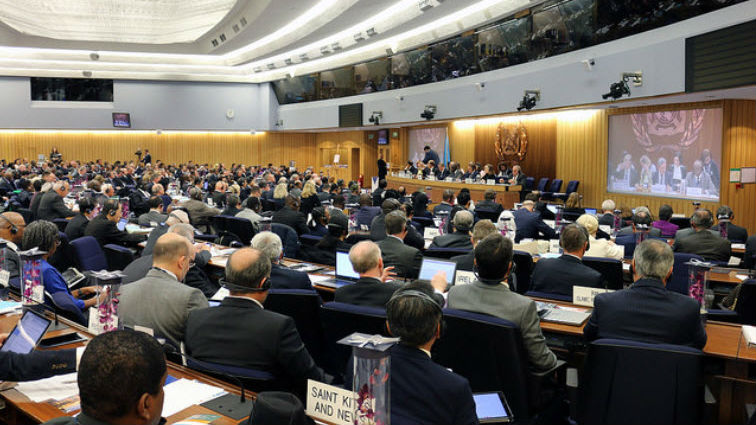African and European governments are resisting heavy-handed pressure from Washington as the United States escalates threats against countries supporting a landmark deal to slash carbon emissions from the shipping industry.
The confrontation is shaping up to be one of the fiercest geopolitical battles yet over climate policy, with diplomats accusing the US of using trade muscle to protect its domestic industries at the expense of vulnerable nations and the global fight against warming.
The International Maritime Organisation (IMO), the United Nations body responsible for regulating global shipping, will meet in London on 13 October to finalise a framework requiring ships to achieve net zero emissions “by or around” 2050. The agreement also sets interim goals, including a 20 percent reduction in emissions intensity by 2030 and 70 percent by 2040.
Shipping accounts for almost three percent of global carbon pollution—comparable to Germany’s annual output—and without decisive action, emissions could rise by half by mid-century, derailing the Paris Agreement’s 1.5°C target.
Instead of lending support, US officials have privately warned allies of punitive action. Dutch diplomats were reportedly told their country could face retaliation if it votes in favour, while a State Department spokesperson has hinted at tariffs, visa restrictions and port levies against supportive nations.
According to diplomats, the threats are part of a wider campaign driven not only by political considerations in Washington but also by powerful American shipping interests and fossil fuel lobbyists determined to delay costly new rules that would force investment in cleaner technologies and alternative fuels.
African nations, many already reeling from coastal erosion, flooding and food insecurity linked to climate change, have reacted with anger.
Privately, officials from African states described Washington’s stance as “climate bullying,” noting that the continent contributes least to global emissions yet suffers some of the gravest consequences. For them, weakening the IMO framework amounts to a betrayal, particularly after the US has already cut back USAID support and imposed tariffs that have harmed African economies.
Europe, meanwhile, has taken a firm line. The European Union has already integrated shipping into its carbon market and is pressing for global rules to level the playing field. German and French officials have quietly reassured smaller states that Europe will absorb some of the economic shocks of transition, while the UK has insisted it will back the IMO framework regardless of American threats.
One London-based diplomat, who wants to remain anonymous, said, “The US is trying to hold the world hostage, but Europe has moved on. We cannot let Washington’s obstruction sink the deal.”
China and Russia are also expected to support the framework, albeit for different reasons. Both see strategic advantage in countering American influence while building dominance in the emerging market for green shipping technologies.
Analysts note that China, already a global leader in shipbuilding, is positioning itself to supply the vessels and fuels of the future, while Moscow is seeking leverage in global trade diplomacy.
The battle lines are sharpening because of the IMO’s voting rules, which require not only a two-thirds majority but also approval from countries representing at least half of the world’s shipping tonnage. This gives unusual power to a handful of small flag states—Panama, Liberia and the Marshall Islands among them—whose vast registries could tip the balance. Many of these states are deeply dependent on US trade and investment, leaving them vulnerable to threats.
Yet despite the risks, diplomats from Africa and Europe are signalling they will not bow. For them, this is a fight over the credibility of multilateral climate diplomacy itself.
If the US succeeds in blocking the deal, shipping emissions could continue unchecked, trade wars over unilateral carbon rules could erupt, and the world’s poorest countries would be left paying the price.
The showdown at the IMO in October will determine not just the future of global shipping but whether the international community can resist one of the world’s most powerful countries in order to protect the planet.
